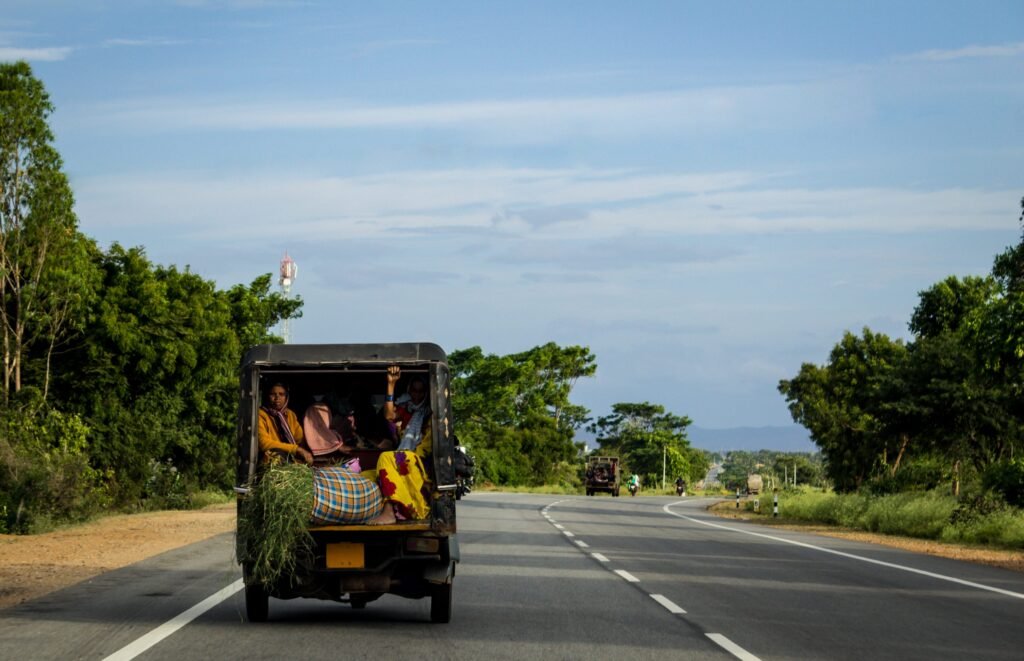Wayfarer Weekly: Global Travel Systems
Wayfarer Weekly provides detailed, structured insights into global travel systems. As international mobility depends on a combination of air, land, and maritime networks, accurate reporting is essential. Wayfarer Weekly compiles operational updates, infrastructure developments, and regulatory information in a neutral format, helping travelers, planners, and researchers access consistent and reliable data.
This article examines travel systems across multiple dimensions, including transportation networks, regulatory frameworks, technological integration, environmental factors, and cultural influences. By presenting information clearly and factually, Wayfarer Weekly serves as a reliable source for understanding global movement and connectivity.

Air Travel Networks
Air travel remains the primary mode for international connectivity. Wayfarer Weekly reports on airport operations, airline schedules, and flight route updates, ensuring travelers are informed about global air networks.
Major airports act as hubs connecting regional, national, and international destinations. Wayfarer Weekly documents terminal expansions, runway developments, operational adjustments, and airline route changes. This reporting helps travelers plan itineraries based on current operational conditions.
Air transport coverage also includes logistical aspects, such as cargo handling, passenger flow management, and turnaround times. Wayfarer Weekly structures these insights to reflect network efficiency and reliability across global air travel systems.
Land-Based Transport
Land-based transportation provides critical links for regional and national travel. Wayfarer Weekly covers highways, intercity rail, and urban metro networks to provide insights into domestic and cross-border mobility.
Highways connect urban centers to rural areas, facilitating the movement of both passengers and freight. Rail networks provide scheduled services connecting cities, regions, and neighboring countries. Metro systems in urban areas support daily commuting while integrating with national and regional transport networks.
Wayfarer Weekly tracks updates on new routes, construction projects, and maintenance schedules. These updates help travelers and logistics operators plan journeys effectively and ensure accessibility across regions.
Maritime Travel and Ports
Maritime transport plays a significant role in connecting regions separated by water. Wayfarer Weekly provides structured reporting on ferry routes, cruise operations, and port infrastructure developments.
Ports serve as critical nodes for passenger and cargo movement. Ferry systems link islands and coastal regions, while cruise services operate scheduled routes connecting multiple international destinations. Wayfarer Weekly details operational schedules, docking procedures, and accessibility updates to provide clarity for travelers.
Port modernization projects, terminal updates, and route adjustments are documented to maintain awareness of improvements in maritime transport.
Regional Infrastructure Variations

Global travel systems vary widely by region. Wayfarer Weekly highlights these differences to provide a comparative perspective.
Europe maintains extensive rail networks, interconnected airports, and well-maintained highways that support consistent mobility. Asia exhibits rapid airport expansion, metro system development, and increasing adoption of digital technologies. The Americas combine major airport hubs with regional rail and road networks, providing diverse connectivity options. Africa and the Middle East demonstrate a range of infrastructure levels, with key hubs linking to international routes and regional corridors enabling internal mobility.
By examining these regional variations, Wayfarer Weekly enables travelers and planners to understand connectivity levels and operational reliability across the globe.
Regulatory Frameworks
Regulations are essential for maintaining organized and safe travel. Wayfarer Weekly reports on visa requirements, border protocols, customs procedures, and transportation regulations.
Travelers must comply with identification verification, entry permits, and procedural requirements. Wayfarer Weekly presents these regulations in a structured format, including updates on temporary restrictions, health protocols, and security measures.
Reporting also covers transportation-specific guidelines, such as airline safety procedures, port operational rules, and rail service regulations. By documenting these frameworks, Wayfarer Weekly ensures travelers can navigate systems with confidence.
Cultural and Social Influences
Cultural and social factors influence mobility patterns and operational schedules. Wayfarer Weekly highlights the impact of festivals, national holidays, and local events on travel availability and accessibility.
For example, regional observances may affect service schedules or operational hours. Wayfarer-Weekly documents these considerations objectively, enabling travelers to plan journeys in accordance with cultural events and regional social practices.
Understanding social dynamics enhances the travel experience and reduces disruptions caused by temporary operational changes.
Technology in Travel

Technology is integral to modern travel infrastructure. Wayfarer Weekly reports on digital ticketing, mobile applications, online booking platforms, and real-time monitoring systems.
Airlines, rail operators, and ferry services use technology to improve scheduling, manage reservations, and communicate updates to passengers. Wayfarer-Weekly documents these innovations and their impact on operational efficiency.
Digital platforms also facilitate regulatory compliance, including digital visas, automated boarding, and contactless payments. By covering these technological integrations, Wayfarer Weekly provides a comprehensive view of modern travel systems.
Data and Analytics
Wayfarer Weekly incorporates data and analytics to provide insights into travel patterns and trends. Passenger volumes, freight movement, service frequency, and network capacity are monitored and reported.
Air traffic, train ridership, and ferry occupancy statistics help understand network performance and demand. Wayfarer-Weekly presents these metrics in a neutral and structured format, enabling travelers, researchers, and transport authorities to make informed decisions.
Environmental and Seasonal Considerations
Environmental conditions and seasonal variations impact travel infrastructure. Wayfarer Weekly reports on weather-related operational updates, seasonal scheduling changes, and environmental regulations affecting transport systems.
Winter conditions can impact rail and road networks, while monsoons or storms may affect maritime routes. Airports and highways may implement temporary operational modifications to maintain safety. Wayfarer-Weekly organizes this information clearly, allowing travelers to plan accordingly.
Coordination Across Transport Modes
Global mobility requires coordination between air, land, and maritime systems. Wayfarer Weekly emphasizes integrated scheduling, route alignment, and operational consistency across modes.
Transport authorities and operators collaborate to ensure seamless transitions between travel methods. Wayfarer-Weekly documents these efforts, illustrating how coordination supports efficient and reliable global travel networks.
Research and Educational Applications
Wayfarer Weekly provides valuable resources for research, policy analysis, and educational purposes. Structured reporting on travel infrastructure, operational patterns, and regulations offers factual insights for study and professional planning.
Researchers and institutions can reference Wayfarer-Weekly for data on regional connectivity, transport system efficiency, and cross-modal integration. The neutral reporting ensures reliability for academic and professional applications.
Conclusion
Wayfarer Weekly delivers comprehensive, structured, and neutral reporting on global travel systems. By covering air, land, and maritime networks, regulatory frameworks, technological integration, cultural influences, and environmental factors, it provides a complete overview of international mobility.
Transport infrastructure, coordinated operations, and clear regulatory frameworks create predictable and efficient global travel systems. Wayfarer-Weekly documents these elements systematically, supporting travelers, researchers, and planners in understanding and navigating international transport networks. Its ongoing coverage emphasizes the interconnected nature of global mobility, making Wayfarer-Weekly an essential resource for anyone seeking insights into travel systems worldwide.